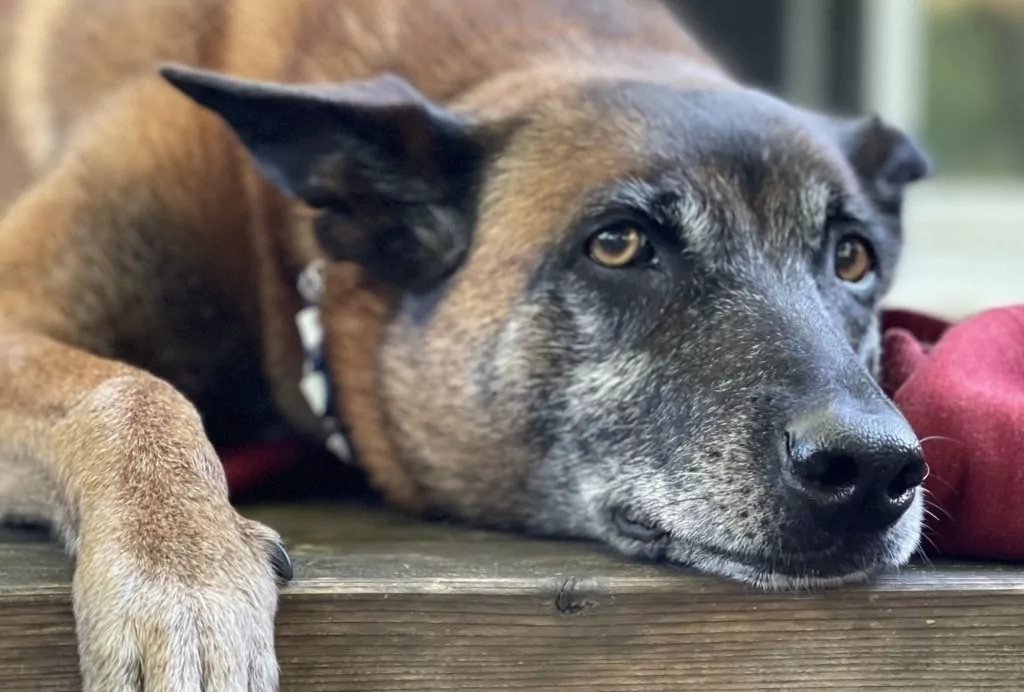
October 10 was World Mental Health Day and we would be remiss if we didn’t take a moment to acknowledge the psychological and physical health benefits afforded by life with dogs. For thousands of years, through various ways and means, dogs have extended to us care and companionship like no other domesticated animal. Over the centuries, dogs supported us in countless ways – in our homes, on our farms, and on battlefields, and helped us survive as a species.
Fast forward to today, most dogs are primarily companions, active companions perhaps, but still living in a non-working capacity. It also appears that their role has evolved into caring for our psychological needs. We hear dogs routinely referred to as “emotional support animals” and “furry therapists,” especially during the pandemic days of lockdown and isolation.
There are two ways in which dogs can act as “furry therapists.” The first is constructive and positive for human and dog while the second one isn’t.
In the first scenario, raising and training our dogs is a positive challenge that saves us from the darker sides of ourselves. The desire to do right by the dog at every level imaginable becomes a worthy endeavor that gets us out of our heads. The sense of obligation, enthusiasm, and energy we feel getting up each day to exercise, train, and socialize our dog inevitably spills over onto our own mental health. We work on becoming a better person so that our dog can be the most sound, strong, and spirited dog he can be. There’s no room to be anxious or depressed when this is the kind of motivation guiding us.
And then there’s the second scenario that’s negative for both human and dog. In this case, the dog is genuinely treated as therapist. Thus, we unload onto our dog our emotional baggage, need for attention, and craving for affection, forgetting that our dog did not choose this relationship. Of course, our dogs are loving and loyal, and they’re happy to be there for us, but to what point? And at what cost?
I met a man in a parking lot once where I was working Bruna. He asked if his dog could meet her. I’m usually not one for allowing meetings with novel dogs but then I glanced over at his dog, an older, overweight, and sad-looking little dog. The man called him over several times, but the dog, named Toffee, wouldn’t move.
The man shared that he’d had a rough couple of years with the illness and subsequent passing of a close family member. He had tears in his eyes when he described how Toffee had been such a friend during this time. It was clear the man had felt better through his ordeal for having had Toffee. But I could not help but wonder about the toll that the experience had taken on the dog. There was no joy in Toffee’s demeanor. To me, he appeared frozen in time, burdened by human-grade pain he could empathize with but not necessarily understand. The weight of that load had become physical, adding to the labored movements of his overindulged body.
In this season’s reflection, I invite you to consider whether your dog has been some kind of therapist to you. What type of therapist has he been? And what’s been the effect on him to have performed that role for you?
As I see it, we have a duty to protect our dogs’ mental health, in part by shielding them from our human commotions. This can be as simple as grieving in private, putting the dogs away if we’re not feeling well, taking disagreements with family members out of the room, or making a genuine effort to be upbeat even if we’re not really feeling it. Because the health and joy of our dogs are worth it.
The point of this reflection is that love calls on us to take charge of our health, physical and mental, so that we can be there in the best of ways for those who depend on us.
Especially our dogs.